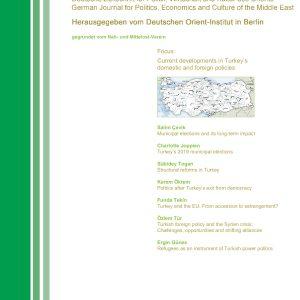Description
This article aims to analyse Ankara’s policy towards the Syrian crisis and argues that this policy has become a game-changer in Turkish foreign policy, deeply affecting its relations with regional and international actors. The Turkish government took a stance against the al-Assad regime as the crisis began and became a part of the civil war in Syria. However, as the resilience of the regime became evident, Turkey felt isolated and began to focus more actively to the threat emanating from Northern Syria mostly due to the PYD/YPG, and led two military operations in this country. In the meanwhile, strong US support for the PYD/YPG pushed Ankara closer to Moscow and Turkey tried to become an active player in the future of Syria by developing closer links to Russia and Iran. This move on the one hand gave an opportunity to Ankara to break out of its isolation and on the other hand led to a questioning of the future of the traditional pro-western stance in Turkey’s foreign policy.
Özlem Tür is Professor of International Relations at Middle East Technical University, Ankara, Turkey. Her main expertise include Turkey’s relations with the Middle East (especially Syria, Israel and lebanon) and the Arab-Israeli conflict. Her publications include Turkey-Syria Relations – Between Enmity and Amity (london: Ashgate, 2013, co-edited with Raymond Hinnebusch); Turkey and Israel in the 2000s (Israel Studies, 2012); Political Economy of Turkey’s Relations with the Middle East (Turkish Studies, 2011).




Reviews
There are no reviews yet.